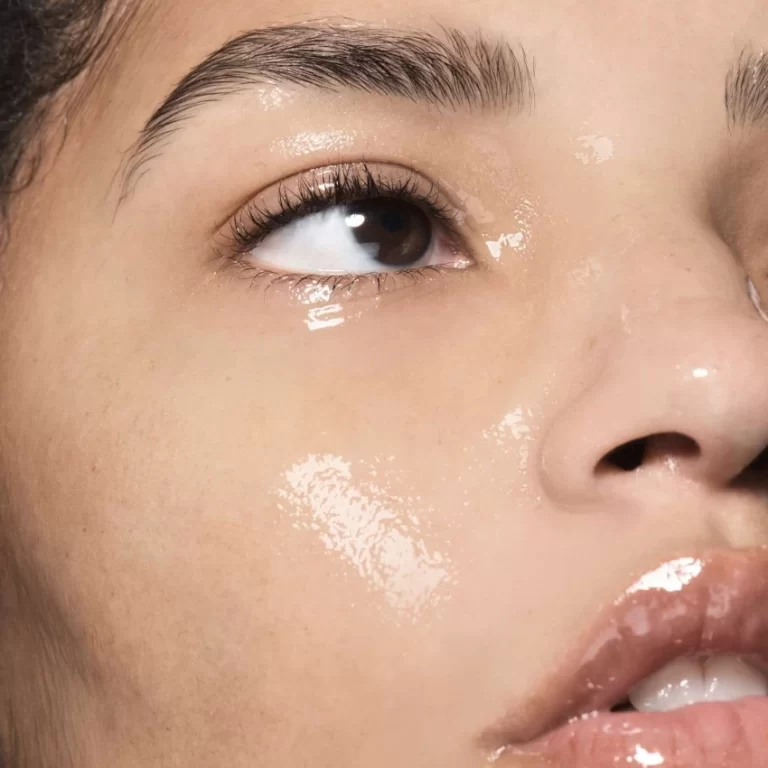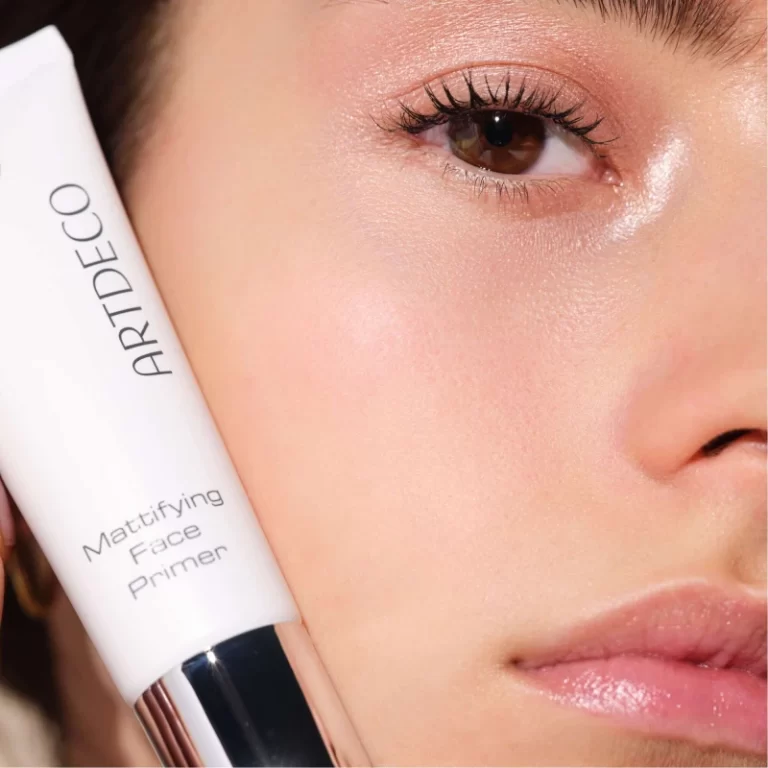
Unveiling the Best Primer for Sensitive Skin
Unveiling the Best Primers for Sensitive Skin: A Comprehensive Guide
In the realm of makeup, primers serve as the unsung heroes that create the perfect canvas for a flawless application. For those with sensitive skin, finding the right primer can be a challenging yet crucial task. This guide delves into the world of primers specifically formulated for sensitive skin, exploring their benefits, key ingredients, and top recommendations to help achieve a smooth, long-lasting makeup look without irritation.
Understanding Sensitive Skin and Its Needs
Sensitive skin reacts easily to environmental factors, skincare products, and cosmetics. It often manifests as redness, itching, burning, or dryness. People with sensitive skin need to be particularly cautious when selecting makeup products, including primers. The ideal primer for sensitive skin should not only provide a smooth base for makeup but also offer soothing and protective properties to prevent irritation and maintain skin health.
Primers for sensitive skin typically contain gentle, non-irritating ingredients and exclude common allergens and irritants. These formulations often incorporate calming agents like aloe vera, chamomile, or green tea extract. Additionally, they may feature hydrating components such as hyaluronic acid or glycerin to maintain skin moisture and prevent dryness, which can exacerbate sensitivity.
The Role of Primers in a Sensitive Skin Routine
Primers play a multifaceted role in a makeup routine, especially for those with sensitive skin. They create a barrier between the skin and makeup, reducing the likelihood of irritation from foundation, concealer, and other cosmetics. This protective layer can help minimize the absorption of potentially irritating ingredients into the skin, making makeup wear more comfortable for sensitive skin types.
Furthermore, primers can address specific skin concerns that often accompany sensitivity, such as redness or uneven texture. Color-correcting primers with a green tint can neutralize redness, while smoothing primers can help even out skin texture without causing irritation. By choosing the right primer, individuals with sensitive skin can enhance their makeup application while simultaneously caring for their skin’s unique needs.
Key Ingredients to Look for in Sensitive Skin Primers
When searching for the best primer for sensitive skin, certain ingredients stand out for their gentle yet effective properties. Hyaluronic acid tops the list as a powerful humectant that hydrates the skin without clogging pores or causing irritation. This ingredient helps create a plump, smooth surface for makeup application while maintaining skin hydration throughout the day.
Niacinamide, also known as vitamin B3, is another beneficial ingredient for sensitive skin primers. It helps strengthen the skin barrier, reduce inflammation, and even out skin tone. Niacinamide-infused primers can provide both immediate and long-term benefits for sensitive skin.
Antioxidants like vitamin E and green tea extract offer protection against environmental stressors that can aggravate sensitive skin. These ingredients help neutralize free radicals and soothe the skin, making them valuable additions to primers designed for sensitive skin types.
Mineral-based ingredients such as zinc oxide and titanium dioxide provide gentle sun protection and can help create a smooth, even surface for makeup application. These ingredients are less likely to cause irritation compared to chemical sunscreens, making them ideal for sensitive skin formulations.
Ingredients to Avoid in Primers for Sensitive Skin
Just as important as knowing what ingredients to look for is understanding which ones to avoid. Sensitive skin can react negatively to a wide range of components commonly found in cosmetics. Fragrances, both natural and synthetic, top the list of ingredients to steer clear of, as they are a common cause of skin irritation and allergic reactions.
Alcohol-based ingredients can be drying and potentially irritating to sensitive skin, so it’s best to opt for alcohol-free primer formulations. Similarly, chemical sunscreens like oxybenzone and avobenzone may cause reactions in some individuals with sensitive skin, making mineral-based sun protection a safer choice.
Silicones, while effective at creating a smooth surface, can be problematic for some sensitive skin types. They may trap bacteria and oil, potentially leading to breakouts or irritation. However, not all sensitive skin reacts negatively to silicones, so individual experimentation may be necessary to determine tolerance.
Parabens, sulfates, and phthalates are other ingredients that sensitive skin types often benefit from avoiding. These preservatives and surfactants can potentially irritate the skin and disrupt its natural balance.

Top Recommendations for Sensitive Skin Primers
After considering the needs of sensitive skin and the ideal ingredients, several primers stand out as excellent options. The Hourglass Veil Mineral Primer offers a silky, oil-free formula that includes zinc oxide and titanium dioxide for gentle sun protection. Its lightweight texture helps smooth the skin’s appearance without causing irritation, making it a top choice for those with sensitive skin.
For those seeking intense hydration along with priming benefits, the First Aid Beauty Hello FAB Coconut Skin Smoothie Priming Moisturizer combines nourishing ingredients like coconut water and quinoa protein with subtle light-reflecting micro-pearls. This multitasking product hydrates, smooths, and primes sensitive skin without heaviness or irritation.
The Smashbox Photo Finish Primerizer offers a unique 2-in-1 primer and moisturizer formulated with hyaluronic acid and niacinamide. This combination provides hydration, helps reduce the appearance of fine lines, and creates a smooth canvas for makeup, all while being gentle enough for sensitive skin.
For those dealing with redness, the Dr. Jart+ Cicapair Tiger Grass Color Correcting Treatment SPF 30 serves as both a primer and a color corrector. Its green-to-beige formula neutralizes redness and provides sun protection, making it an excellent choice for sensitive, redness-prone skin.
Application Techniques for Sensitive Skin
Applying primer to sensitive skin requires a gentle touch and careful technique to avoid irritation. Start with thoroughly cleansed and moisturized skin, allowing any skincare products to fully absorb before applying primer. This ensures that the primer can work effectively without mixing with excess product on the skin’s surface.
Use clean fingers or a gentle makeup sponge to apply the primer, avoiding harsh brushes that may irritate sensitive skin. Gently pat or press the primer into the skin rather than rubbing or dragging, which can cause friction and potential irritation. Focus on areas where makeup tends to fade or separate, such as the T-zone, but apply a thin layer all over the face for even coverage.
Allow the primer to set for a few minutes before applying foundation or other makeup. This waiting period ensures that the primer has fully settled into the skin, creating the optimal base for subsequent products. If any areas feel tacky, gently blot with a clean tissue before proceeding with makeup application.
Customizing Primer se for Different Skin Concerns
While sensitivity is the primary concern, many individuals with sensitive skin also deal with other skin issues that can be addressed through strategic primer use. For those with dry, sensitive skin, look for primers with additional hydrating properties or consider mixing a drop of facial oil into the primer for added moisture.
Sensitive skin that’s also prone to oiliness may benefit from primers with mattifying properties, but it’s crucial to choose formulations that control oil without drying out the skin. Ingredients like kaolin clay or silica can help absorb excess oil without causing irritation.
For sensitive skin with visible pores or texture issues, primers containing blurring ingredients like dimethicone (if tolerated) or natural alternatives like rice powder can help create a smoother appearance without aggravating the skin.
Those dealing with both sensitivity and acne may find success with primers containing salicylic acid or tea tree oil, but it’s essential to patch test these ingredients first, as they can be irritating for some sensitive skin types.

The Importance of Patch Testing and Gradual Introduction
When introducing any new product to a sensitive skincare routine, including primers, patch testing is crucial. Apply a small amount of the primer to a discreet area of the face or neck and monitor for any adverse reactions over 24-48 hours. This precaution can help prevent widespread irritation or allergic reactions.
If the patch test proves successful, gradually incorporate the new primer into your routine. Start by using it every other day or a few times a week, slowly increasing frequency as your skin acclimates. This gradual approach allows you to monitor how your sensitive skin responds to the new product over time and helps identify any delayed reactions.
Pay attention to how your skin feels both immediately after application and throughout the day. Sensitive skin may not always show visible signs of irritation but might feel tight, itchy, or uncomfortable. These subtle cues can indicate that the primer may not be suitable for your skin type.
Conclusion
The quest for the perfect primer for sensitive skin requires patience, research, and often some trial and error. By understanding the unique needs of sensitive skin, recognizing beneficial ingredients, and being aware of potential irritants, individuals can make informed choices when selecting a primer. The right primer not only enhances makeup application and longevity but also supports the health and comfort of sensitive skin.
Remember that what works for one person’s sensitive skin may not work for another’s. Skin sensitivity can vary greatly from individual to individual, and factors like climate, stress levels, and hormonal changes can influence how skin reacts to products. Therefore, maintaining flexibility in your skincare and makeup routine and being willing to adjust products as needed is key to managing sensitive skin effectively.
Ultimately, the best primer for sensitive skin is one that provides the desired makeup-enhancing benefits while respecting the skin’s delicate balance. With the right primer in your beauty arsenal, you can achieve a flawless, long-lasting makeup look while keeping your sensitive skin happy, healthy, and irritation-free. As the beauty industry continues to innovate, more options become available for those with sensitive skin, making it easier than ever to find products that cater to specific needs and concerns.



